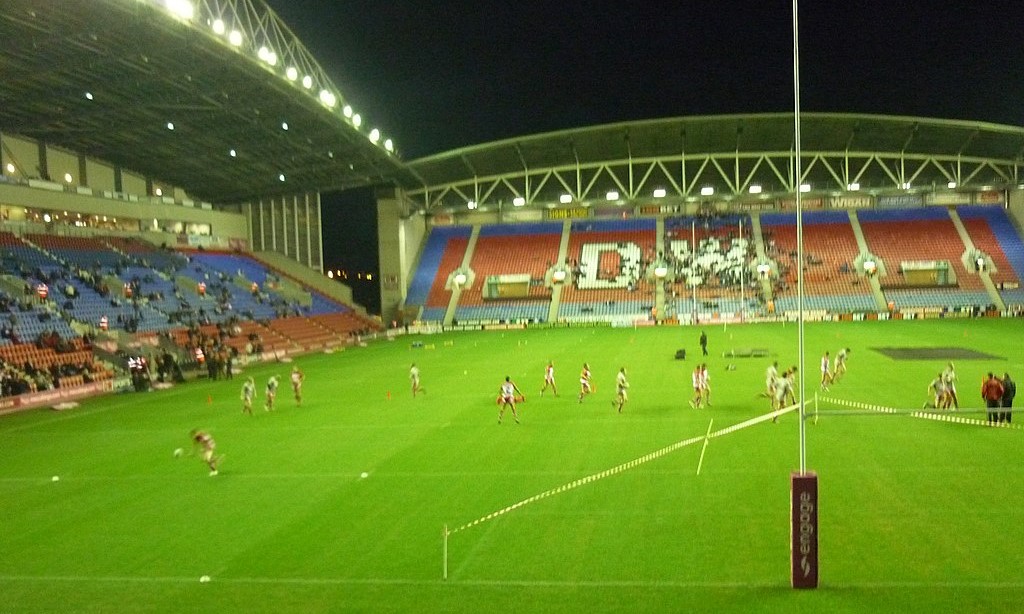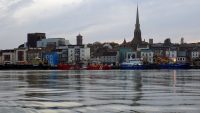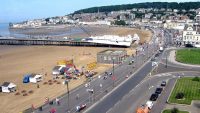Wigan is a town located in Greater Manchester, England, with a rich industrial heritage dating back to the Middle Ages. Historically known for its coal mining, cotton mills, and manufacturing industries, Wigan played a significant role in the Industrial Revolution of the 18th and 19th centuries. The town’s strategic location along the Leeds and Liverpool Canal further facilitated its growth as a center of trade and commerce.
Today, Wigan is a vibrant town with a diverse economy and thriving cultural scene. While the decline of traditional industries has reshaped the town’s landscape, efforts to regenerate the area have led to the development of new industries, such as retail, healthcare, and leisure. The town’s historic landmarks, including the Wigan Pier and the Grade II-listed Wigan Town Hall, attract visitors interested in exploring its industrial heritage and architectural treasures.
Wigan is also renowned for its passionate support of rugby league, with the Wigan Warriors rugby team enjoying success both domestically and internationally. The town’s sports culture, along with its lively pubs, restaurants, and entertainment venues, contribute to its vibrant atmosphere and sense of community spirit. With its blend of history, industry, and modern amenities, Wigan continues to evolve as a dynamic town that embraces its heritage while looking towards the future.

Let’s take a look at these 10 interesting facts about Wigan to know more about it.
- Wigan Pier: Despite its name, Wigan Pier is not actually a pier but rather the name given to the area surrounding the Leeds and Liverpool Canal in Wigan. Made famous by writer George Orwell in his book “The Road to Wigan Pier,” it symbolizes the town’s industrial past and working-class heritage.
- Pie-eating Capital: Wigan is often jokingly referred to as the “pie-eating capital” of the UK due to its love for pies. The annual World Pie Eating Championship, held in Wigan, attracts contestants from around the world to compete for the title of fastest pie eater.
- Haunted Location: Wigan has its share of ghost stories and paranormal activity. Haunted locations in the town include the Old Courts building, reputed to be haunted by the ghost of a former judge, and the Trencherfield Mill, where workers have reported eerie encounters.
- Mining Heritage: Wigan has a rich coal mining heritage, with coal mining playing a significant role in the town’s industrial history. The last deep coal mine in Wigan, the Haigh Colliery, closed in 1968, marking the end of an era for the town’s mining industry.
- Rugby League Dominance: Wigan is known for its strong association with rugby league. The Wigan Warriors, one of the most successful rugby league clubs in the world, have won numerous domestic and international titles, cementing the town’s reputation as a rugby league stronghold.
- Historic Pubs: Wigan boasts a wealth of historic pubs, some dating back centuries. These pubs, such as The Raven, The John Bull Chophouse, and The Anvil, offer visitors a glimpse into Wigan’s past while enjoying a pint of ale or traditional pub grub.
- Wigan Casino: In the 1970s and 1980s, Wigan was home to the legendary Wigan Casino, a nightclub that became synonymous with Northern Soul music. The club attracted thousands of music lovers every week, making it one of the most famous venues in the UK’s Northern Soul scene.
- George Formby: The iconic British comedian and entertainer, George Formby, was born in Wigan in 1904. Known for his witty songs and comedic performances, Formby remains a beloved figure in British entertainment history.
- Transport Hub: Wigan is a major transport hub in the North West of England, with excellent rail and road connections. The town’s railway station, Wigan North Western, offers direct trains to cities such as Manchester, Liverpool, and London.
- Market Town: Wigan has a bustling market that has been trading for over 700 years. Wigan Market offers a wide range of goods, including fresh produce, clothing, electronics, and more, making it a popular destination for shoppers from across the region.
Wigan, with its rich industrial heritage, vibrant cultural scene, and strong community spirit, stands as a testament to the resilience and evolution of a town shaped by centuries of history. From its coal mining roots to its thriving rugby league culture and bustling market, Wigan embodies the spirit of hard work, creativity, and camaraderie that defines its people. As it continues to embrace change and adapt to new opportunities, Wigan remains a town that cherishes its past while embracing the future, making it a dynamic and welcoming destination for visitors and residents alike.



